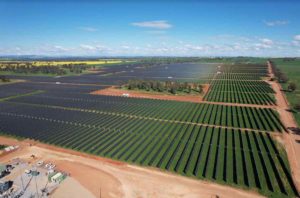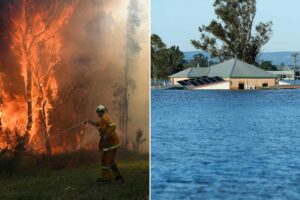According to Australia’s leading carbon markets body, the strong cooperation shown between State and Federal governments in response to the Covid-19 pandemic provides an opportunity to align ambitious efforts to tackle climate change.
Speaking to the Stimulus Summit on Wednesday, Carbon Markets Institute CEO John Connor said that Australia was facing three urgent economic challenges; a need to address the immediate response to Covid-19, a need to continue recovery from the summer’s devastating bushfires, and the long-term need to transition to a zero emissions economy and to reduce the future threats of climate change.
To address these challenges, governments must undertake long-term planning to make the Australian economy more resilient to economic shocks, including the types of disruption caused by Covid-19, as well as the long-term threats posed by a warming planet.
“When it comes to a repair job there’s no point replacing a flat tyre if the engine is bust. There’s no point fixing the engine if the chassis is corroded. There’s no point in a Fred Flintstone led recovery,” Connor told the Stimulus Summit, co-hosted by the Smart Energy Council and RenewEconomy.
“Fortunately Australia and Australian business has every opportunity for a resilient, regenerative and renewable recovery. Our resources and re-discovered capacity for national coordination, innovation and common purpose presents us a historic opportunity with which to engage it,” Connor added.
Earlier this week, New Zealand prime minister Jacinda Ardern joined the National Cabinet meeting of Australian heads of government to discuss potential cooperation between the two countries in driving the recovery of their respective economies.
Prime minister Scott Morrison was the only leader at the National Cabinet meeting, which included the leaders of all State and Territory governments, in addition to Ardern, without an official commitment to reach net zero emissions.
Connor said that the level of cooperation that has been exhibited between the federal and the state and territory leaders in managing a coordinated response provided an opportunity to align national climate targets with the net zero emissions targets adopted by the sub-national governments.
“Australian governments, business and community have performed together admirably in response to the COVID crisis – we can do so again as we plan our recovery and our repair tasks responding to bushfire, climate and the COVID crisis,” Connor said.
“Good policy and carbon markets can funnel investment to the right places for a more resilient, regenerative and renewable economic recovery.”
According to the Carbon Markets Institute, the economic response to the challenges faced by the government leaders requires the adoption of ambitious targets for sustainable development, as well as taking advantage of the natural advantages Australia can tap into to support low emissions industries.
“There’s no point to a roadmap without a clear destination and our new found national coordination should see our national government joining all state and territory governments and the 83 per cent of business respondents backing this goal,” Connor said.
Connor added that Australia should look to establish an independent body to review and recommend future emissions reduction targets, including the ramping up of pledges under the Paris Agreement, such as the Independent Climate Commission proposed by Independent federal MP Zali Steggall.
The Carbon Markets Institute represents a range of companies engaged in emissions reduction activities and carbon markets. Connor said that while current government policies required little by way of action on the part of Australia’s major emitters, sufficient frameworks are in place that provide the ‘potential’ to drive decarbonisation.
“Say what you will about Australia’s policy ambition, we have an internationally respected architecture of integrity and assurance for emissions reduction – this includes the world’s first carbon industry code of conduct currently administered by CMI, a robust Clean Energy Regulator and Assurance oversights as well as a reduced but not removed Climate Change Authority with independent review and advisory capacity,” Connor said.
“We have proven and successful platforms for clean technology development and deployment in the CEFC and ARENA alongside CSIRO and a range of Cooperative Research Centres and other knowledge hubs.”
“While the compliance load is not heavy, the Government’s Safeguard Mechanism requires our larger emitters to manage their emissions and purchase carbon reductions in some instances to meet required baselines. Australian companies are trading in emissions.”
“From these resources, policy rudiments and our technological, industrial and agricultural expertise we have as Professor Garnaut says “the potential to be an economic superpower of the future post-carbon world.”
Read more coverage from the Stimulus Summit:
– W.A. sees no new thermal generation being built, even with no state RET
– South Australia minister aiming for 100 per cent renewables before 2030
– Canberra is a model for using climate action to drive economic recovery, minister says
– Smart stimulus can create millions of jobs and accelerate our transition to zero emissions
– Australia’s largest solar farm set for construction after Neoen wins deal with CleanCo
– Garnaut: Australia will lose competitive advantage if no clean energy transition









